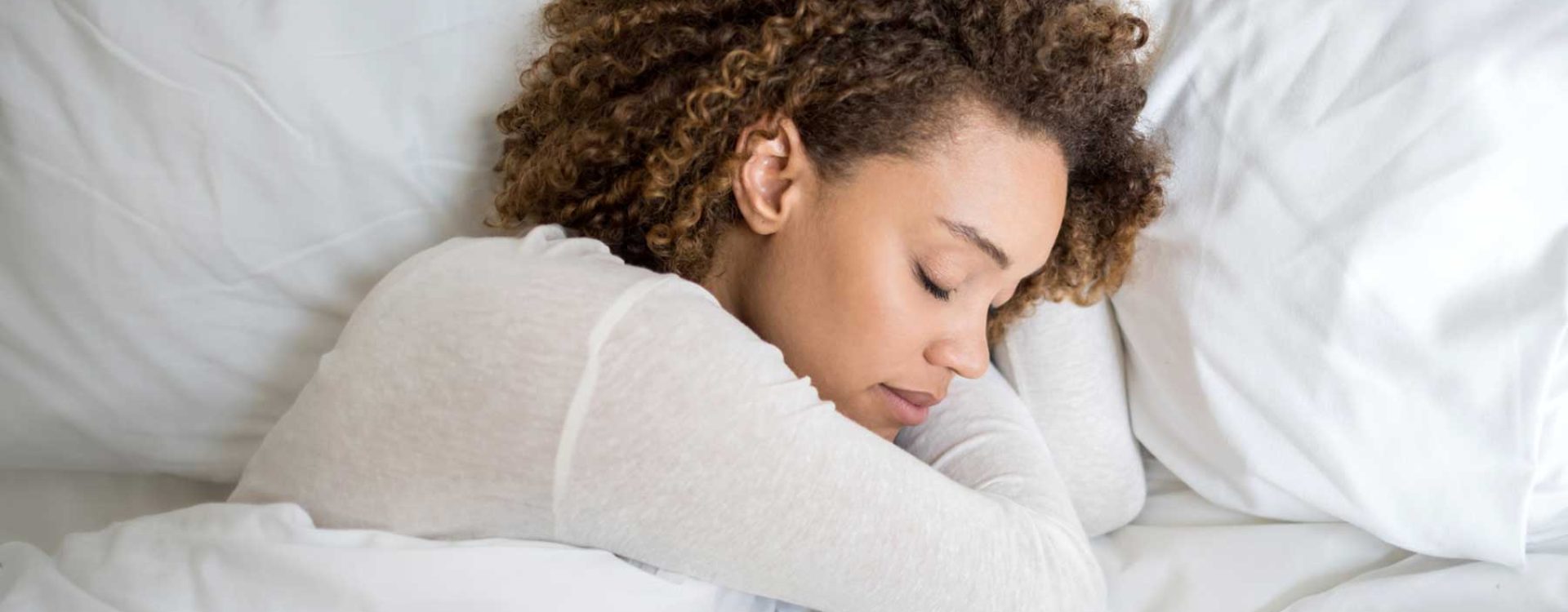If you’ve ever woken up exhausted after a full night’s sleep, your sleep quality could be a factor. Here’s what you need to know about how your sleep cycle works and how to get a better night’s rest.
Light vs. Deep Sleep: The Four Stages of Sleep
Your body alternates between non-rapid eye movement (non-REM) sleep and rapid eye movement (REM) sleep. During sleep, your body cycles through four stages:
Stage one (non-REM sleep): During this stage, your body slows down and your eyes close. You may even experience what’s called a hypnic jerk. This is when you feel like you’re falling just after drifting off to sleep. Hypnic jerks are common and not a sign of a health issue.
Stage two (non-REM sleep): During stage two, your heart rate and brain waves slow, your eye movement stops and your body temperature decrease. This stage prepares your body for deep sleep during stage three.
Stage three (non-REM sleep): Stage three is when you experience deep sleep. If your sleep is interrupted during stage three, you’ll likely feel groggy and disoriented.
Stage R (REM sleep): Finally, your body moves into stage R, which is REM sleep. REM sleep happens in the first hour to hour and a half after you fall asleep. During this stage, your brain activity will increase (with similar activity levels as when you’re awake) and you’ll experience vivid dreams.
Your first REM cycle will last about 10 minutes. Then, you’ll go back to stage one and cycle through each stage again. Each sleep cycle lasts 90 to 110 minutes. The longer you sleep, the longer your REM sleep phase and the shorter your deep-sleep phase.
So, how do you get higher quality sleep each night? The keys are duration, continuity and consistency.
Duration: How Long Should You Sleep Each Night?
Duration is how much you sleep. The National Sleep Foundation recommended sleep times vary with age:
- Between ages 18-64, they recommend striving for between 6-10 hours of sleep per night.
- For ages greater than 65, they recommend between 5-9 hours of sleep per night.
However, different people may require either more or less sleep per night.
Continuity: Uninterrupted Sleep
Even if you get enough sleep, you won’t feel rested if it’s interrupted. If your snoring partner, fidgety pet or nearby traffic noises disrupt your sleep, you won’t feel rested no matter how long you sleep. And if you have a sleep-disrupting condition like sleep apnea, you may wake up numerous times throughout the night without realizing it.
Consistency: Regular Bedtimes and Wake-Up Times
Your circadian rhythm (internal clock) plays a major role in how well you sleep. Your circadian rhythm is influenced by light. When you’re exposed to light, your brain will signal to your body that it’s time to wake up. (That’s why it’s important to put away digital devices at least 30 minutes before going to bed). When you’re exposed to dim light or darkness, your body will get the signal that it’s time to go to sleep.
Maintaining a regular bedtime and wake-up time in tune with your circadian rhythm can help you feel more rested.
Signs You’re Getting High-Quality Sleep
When you get enough high-quality sleep, you’ll:
- Wake up feeling refreshed
- Have plenty of energy throughout the day
- Generally be in a good mood
- Be able to think clearly
Signs You’re Not Getting High-Quality Sleep
If you’re not getting enough good sleep, you may notice:
- Trouble waking up each morning
- Tiredness during the day
- Anxiety
- Depression
- Irritability
- Needing to sleep longer on the weekends
- Needing to take naps during the day
How to Boost Your Sleep Quality
The chemical signals in your brain (neurotransmitters) influence your sleep and wake cycles. The following can disrupt your neurotransmitter balance:
- Alcohol
- Caffeine
- Certain antidepressants
- Heavy smoking
- Hot and cold temperatures
- Certain medications, like diet pills and decongestants
To get a better night’s sleep:
- Eat a healthy diet and exercise regularly
- Avoid alcohol, caffeine and heavy meals at least a few hours before bedtime
- Quit smoking
- Maintain a relaxing bedtime routine
- Go to bed and wake up around the same time each day (even on the weekends or your days off)
- Put away digital devices 30 minutes to an hour before bed
- Avoid clocks during the night
- Sleep in a cool, quiet and dark room
- Avoid taking naps during the day (if you must nap, limit it to 20 minutes or less)
- Check to see if your medications can disrupt your sleep and ask your doctor if you should make any adjusts
Do Sleep Trackers Really Work?
You may wonder if a sleep tracker can help you improve your sleep. A sleep tracker is a device you wear on your body or place under your mattress or pillow. While a sleep tracker can track factors like your heart rate or muscle activity, it can’t directly measure your sleep.
To get precise information about your sleep duration and quality, ask your doctor about a medical sleep study done at home or in a sleep clinic. A sleep study can provide more accurate information than a sleep tracker.
That said, sleep trackers can be beneficial for tracking your habits and what influences your sleep quality. For example, you may notice you feel better when you sleep from 10pm to 6am versus 12am to 8am.
If you consistently have trouble sleeping, talk to your primary care provider. Find a provider near you.





